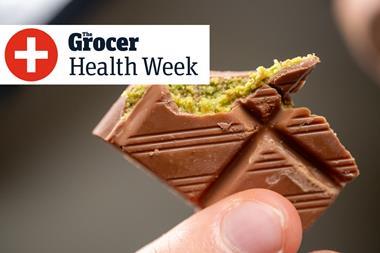Kids rarely need an excuse to gorge themselves silly on all manner of unhealthy treats. But a handful of Dutch consumers, including children, may have found themselves experiencing an unexpected bout of the munchies after eating Haribo sweets from packs found to contain traces of cannabis.
It’s so far unconfirmed whether associated sales of cookies, cheese puffs and ice cream spiked nearby, but Haribo has already recalled its appropriately named Happy Cola Fizz as a precaution.
The sweets come in various pack sizes, but the confectionery giant said only 1kg bags with a use by date of January 2026 and a specific product code have been affected. The brand asked consumers not to return the products in question to the point of purchase but instead send them back to the company, which would offer a full refund.
Thankfully, the worst symptoms reported following ingestion of the totally radical candy appear to be “health complaints such as dizziness” and feeling “quite sick”, according to the Food and Consumer Product Safety Authority (NVWA) in the Netherlands.
The ‘happy world’ of Haribo
The issue was first detected when a couple took a pack of the sweets to their local police station, due to their kids feeling sick. Subsequent forensic testing detected cannabis.
“How the cannabis ended up in the sweets is still unknown,” an NVWA spokesperson told the Dutch news agency ANP. “The police are investigating the matter further.” The authority also confirmed the packs were genuine Haribo products rather than fakes.
The brand said it was treating the incident “very seriously” and the safety of its consumers was always its top priority. “This is a live issue, and we are working closely with the Dutch authorities to support their investigation and establish the facts,” Patrick Tax, vice-president of marketing at Haribo, told Agence France-Presse (AFP).
The confectionery giant also confirmed the recall was only taking place in the Netherlands and that all other products are safe to consume.
Of course, it’s not the first time a food brand has had to scramble to recall products following the discovery of dangerous – and sometimes downright weird – extra ‘ingredients’.
Kids getting a bit of hash in their Haribo pales in comparison to the potential issues faced by a New Zealand charity last summer. It accidentally handed out Rinda sweets that contained extremely high levels of methamphetamine as part of a food parcel,.
Thankfully, the potential disaster did not result in any serious harm: three people sought medical attention but none required hospital treatment. Astonishingly, the New Zealand Drug Foundation estimated each single sweet could have had a street value of about NZ$1,000 (£468).
The police said food was sometimes laced with meth for smuggling purposes.
“We will work closely with law enforcement and relevant authorities to address this issue and protect the integrity of our brand,” Rinda said in a statement.
‘Unfit for human consumption’
Closer to home, in January 2024, The Grocer revealed Revels had disappeared from supermarket shelves due to fears they contained small pieces of rubber.
Just a couple of months earlier, a woman was arrested in connection with chocolate sold at Mansfield Market in Nottinghamshire. A family’s children became sick after consumption, including a 10-year-old boy who was “delirious”, according to his father.
“He was confused, he kept staring at his hands and he was stroking my walls,” the dad told the BBC.
Perhaps the straight-up weirdest of all came the following month in stuffing mix. Sausage meat is the traditional choice, of course, but in December 2023 Tesco customers were treated to an unexpected source of protein in the retailer’s own-label line: moths.
The recall notice issued by Tesco at the time said: “We are recalling a single batch of Tesco Finest Apple & Cranberry Stuffing Mix due to the possible presence of moths, which makes the product unfit for human consumption.”
While no one has sustained serious harm thus far from these instances, and brands have therefore escaped significant censure or a major PR disaster, the relative regularity of these incidents provides pause for thought.
Indeed, in the aftermath of the Haribo episode in the Netherlands, Jane Rawling, head of incidents at the FSA, stressed businesses are responsible for ensuring the food they sell is safe.
“If a business believes they have supplied food that is harmful to health, unfit for people to eat or doesn’t meet legal requirements, they should take steps to immediately remove the food from the market,” she told The Grocer.
Which, of course, all the above companies have done. But, with the jokes about exactly why ’kids and grown-ups love it so’ still circling around the internet, the question is still whether Haribo has done enough to maintain consumer trust?




















No comments yet